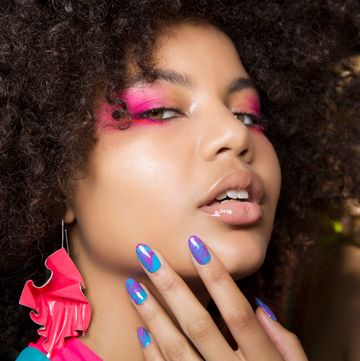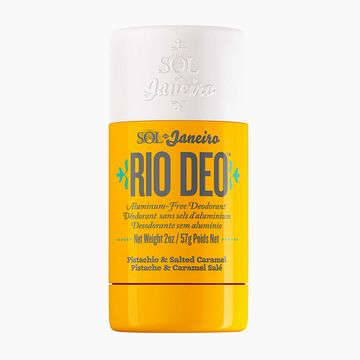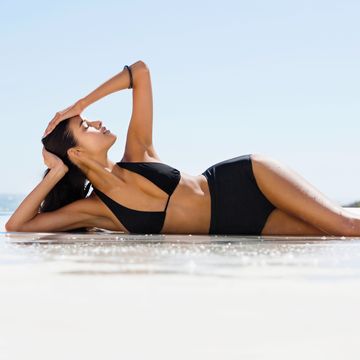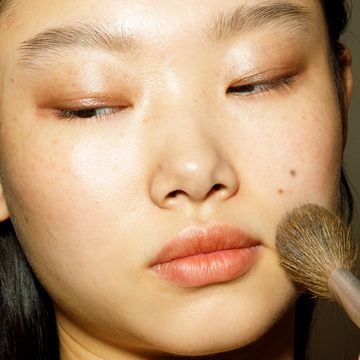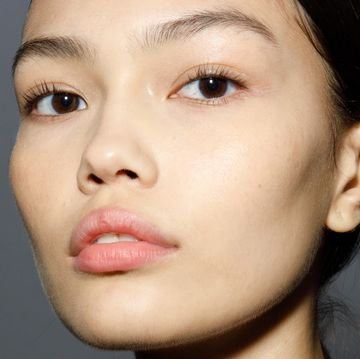Every item on this page was chosen by an ELLE editor. We may earn commission on some of the items you choose to buy.
10 Best Sunscreen Sticks for Seamless, On-the-Go Application
Meet your new favorite travel accessory.

We’ve said it before and we’ll say it again: sunscreen should be worn every. single. day. According to the Academy of Dermatology, SPF is a crucial part of any skincare routine, as it can help reduce your risk of skin cancer and prevent signs of aging—like dark spots, fine lines, and wrinkles. Since it’s recommended to re-apply SPF every two hours, why not go for a handy sunscreen stick that allows for easier touchups wherever you go?
“Sunscreen sticks are simple to travel with and great for throwing in your purse or toiletry bag,” says dermatologist Dr. Claire Wolinsky. “They’re ideal for use around the eyes and mouth where we don’t want any sunscreen to drip, as well as on the back of the hands and feet.”
Additionally, sunscreen sticks can be a more hygienic alternative to liquid formulas, as you don’t need to blend them in with your fingers during application.
Our top pick for the best sunscreen sticks of 2023
- 1
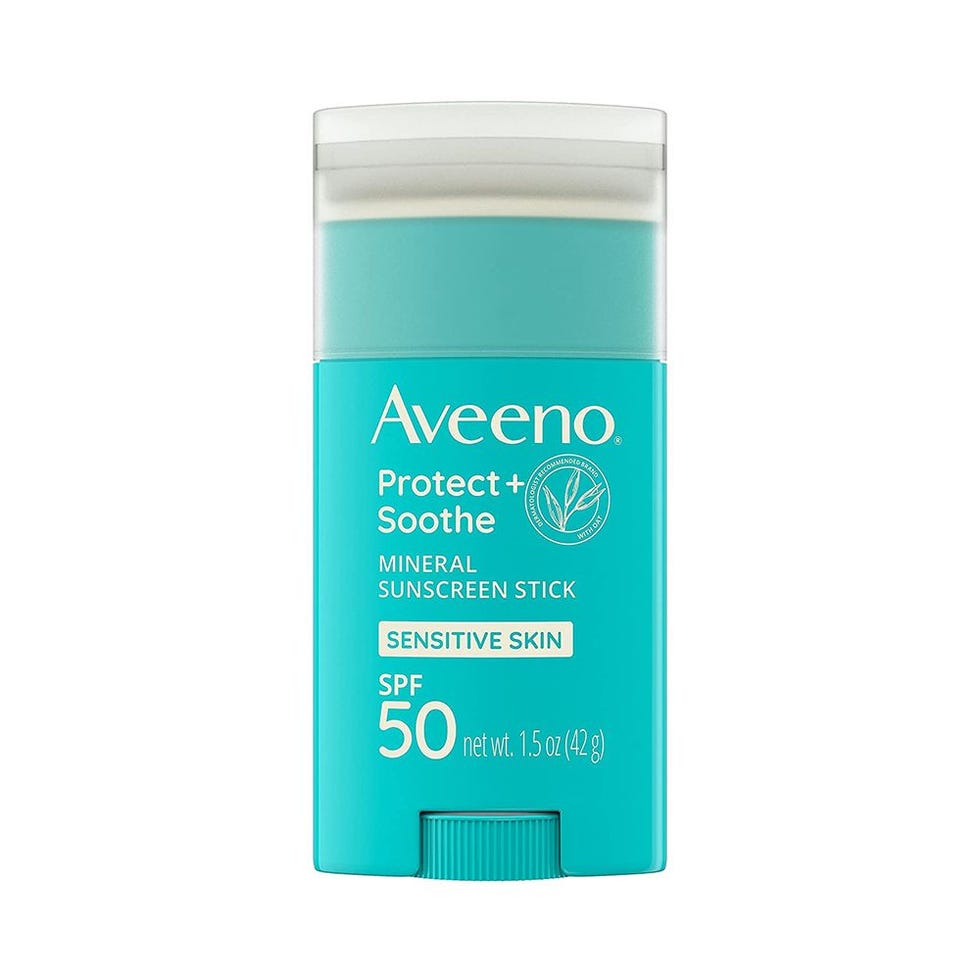
- 2
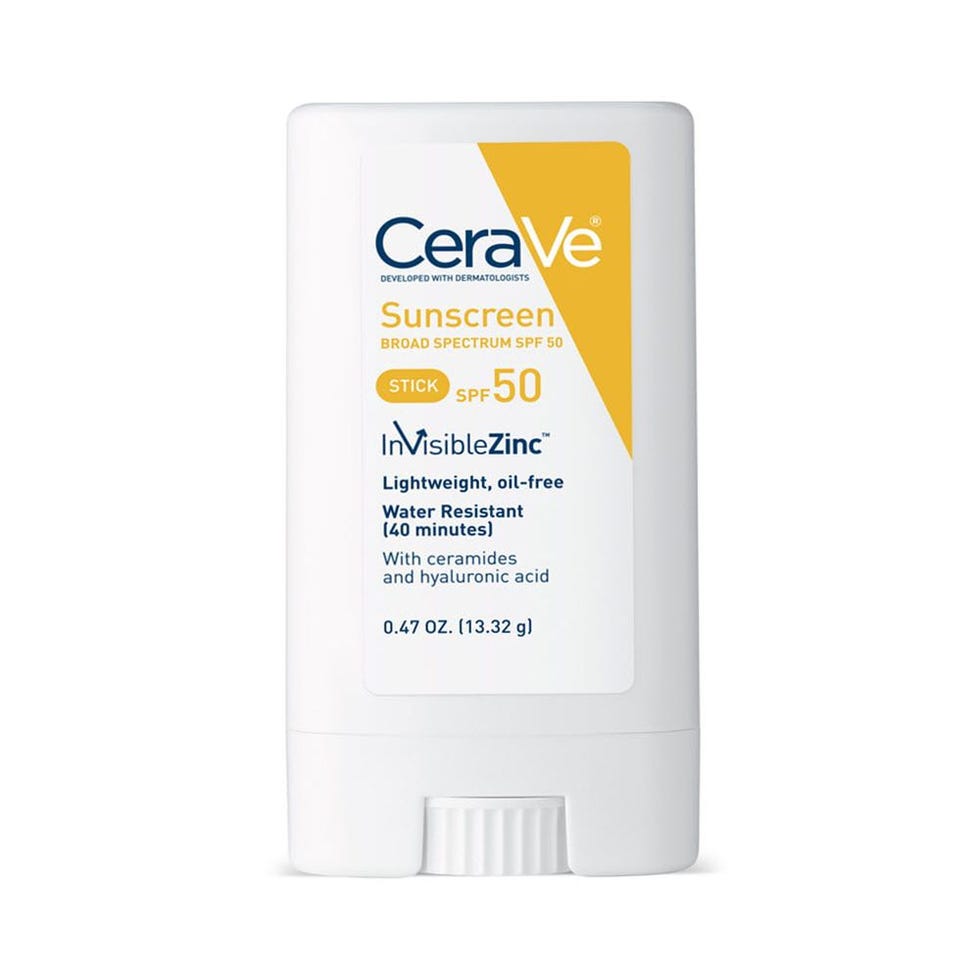
- 3

- 4
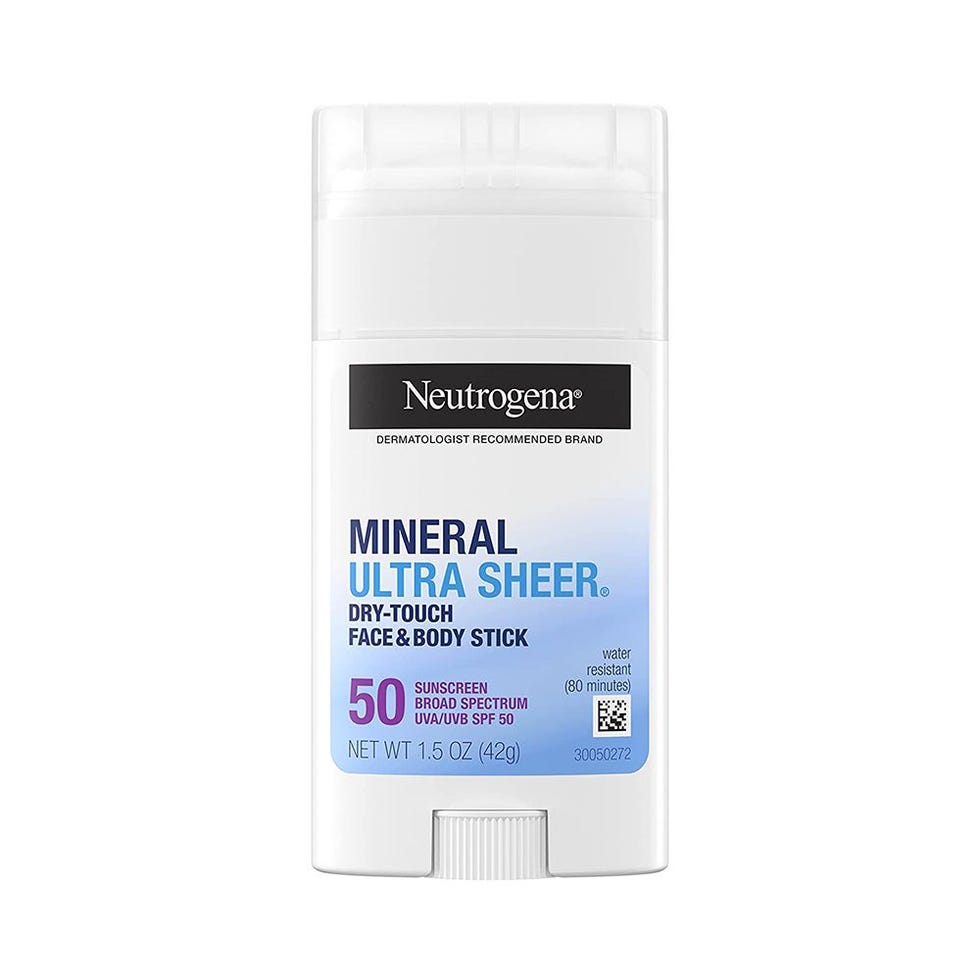
- 5
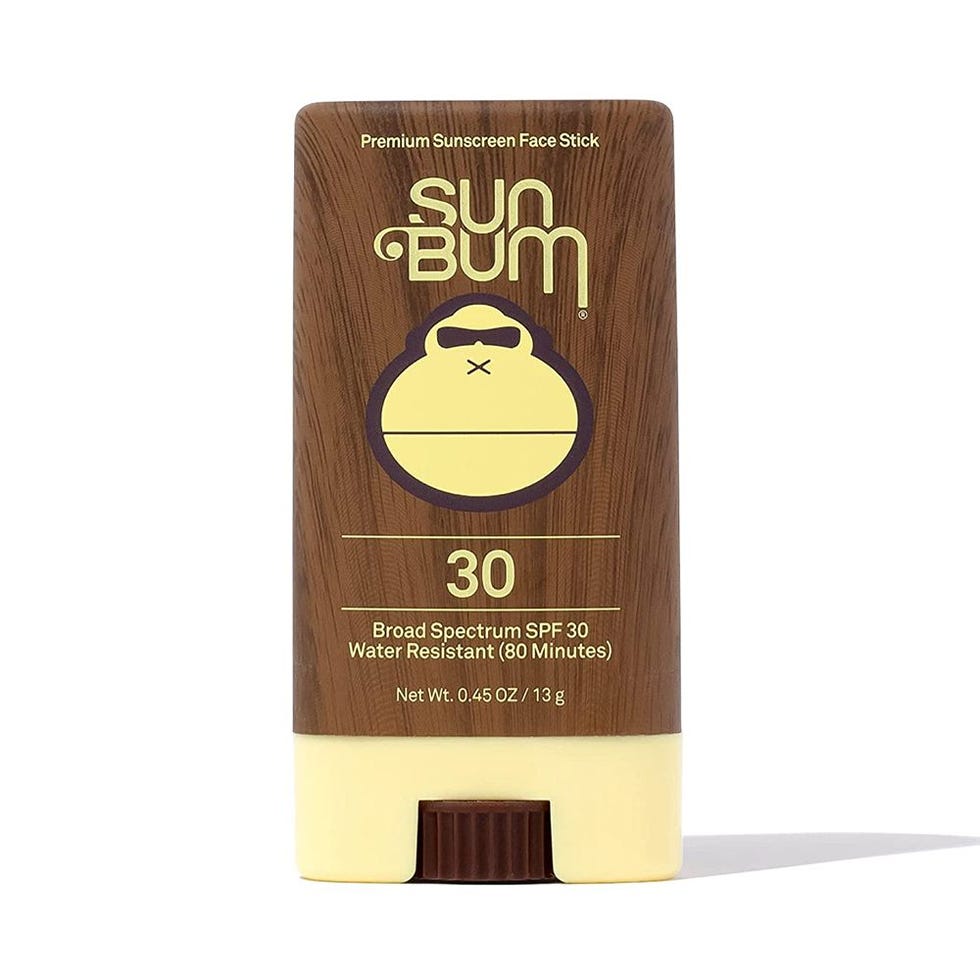
- 6

- 7
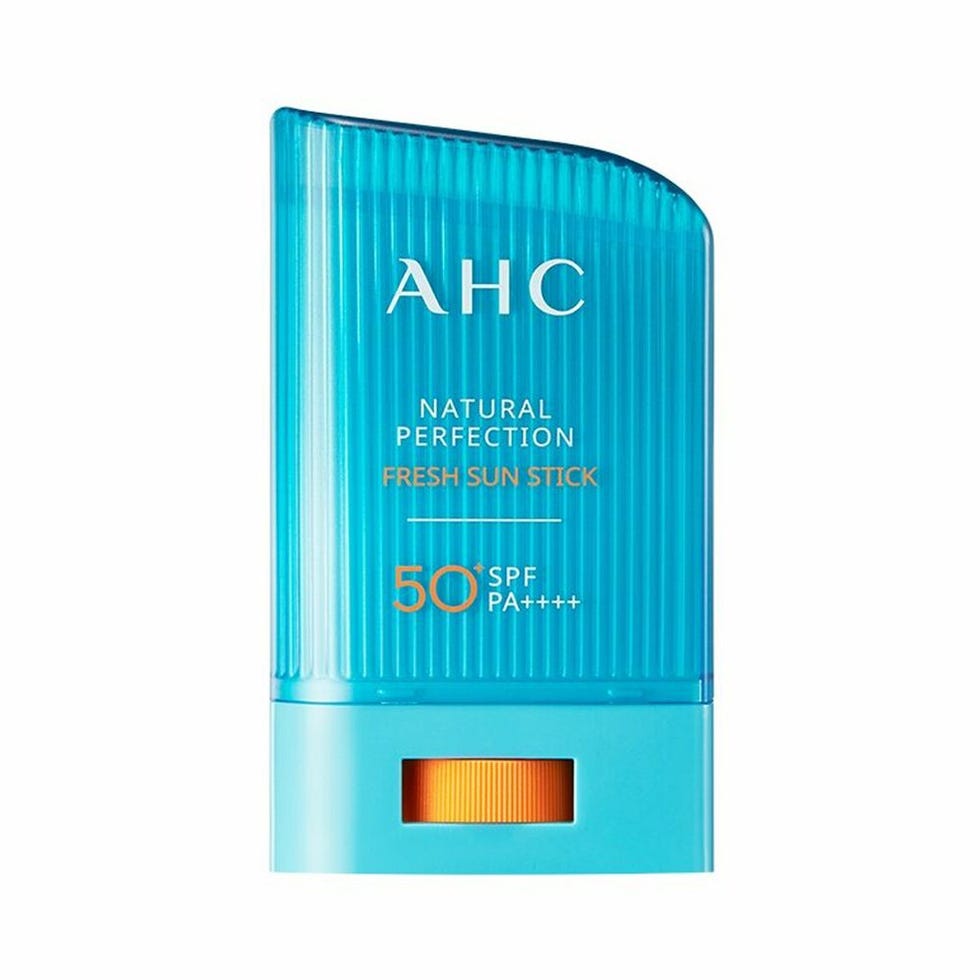
- 8

- 9
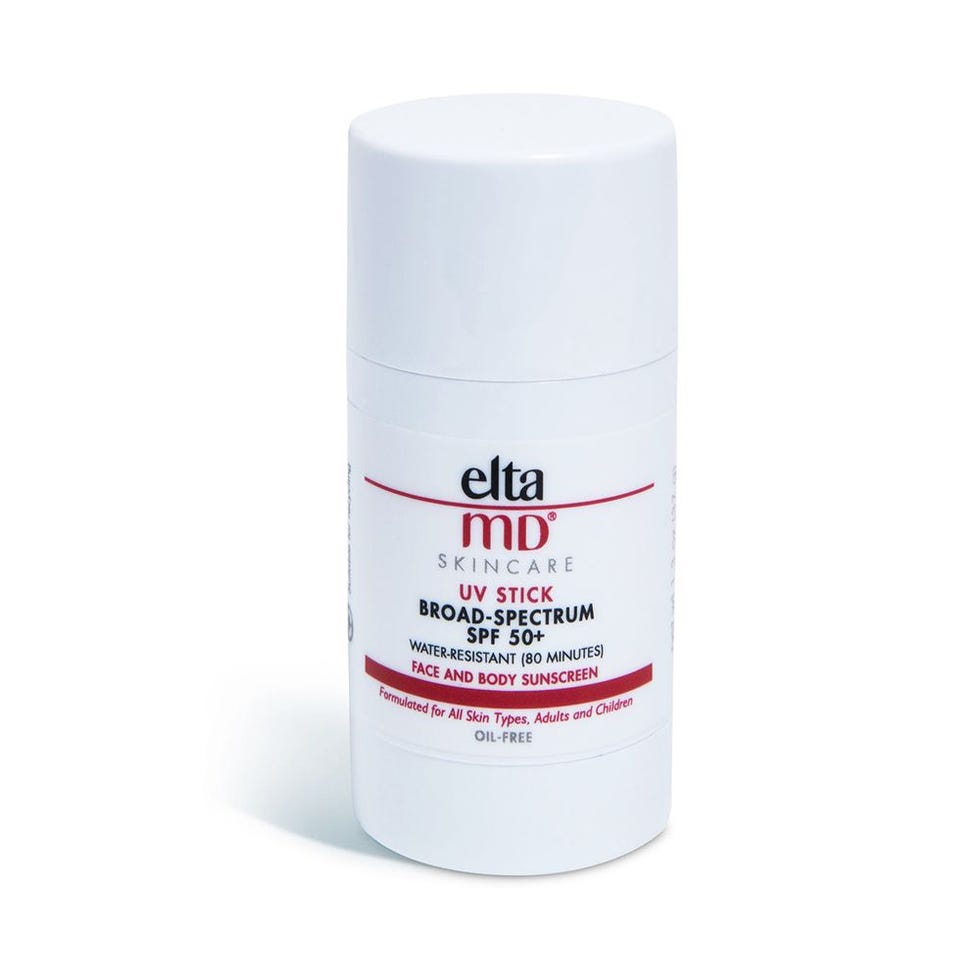
- 10
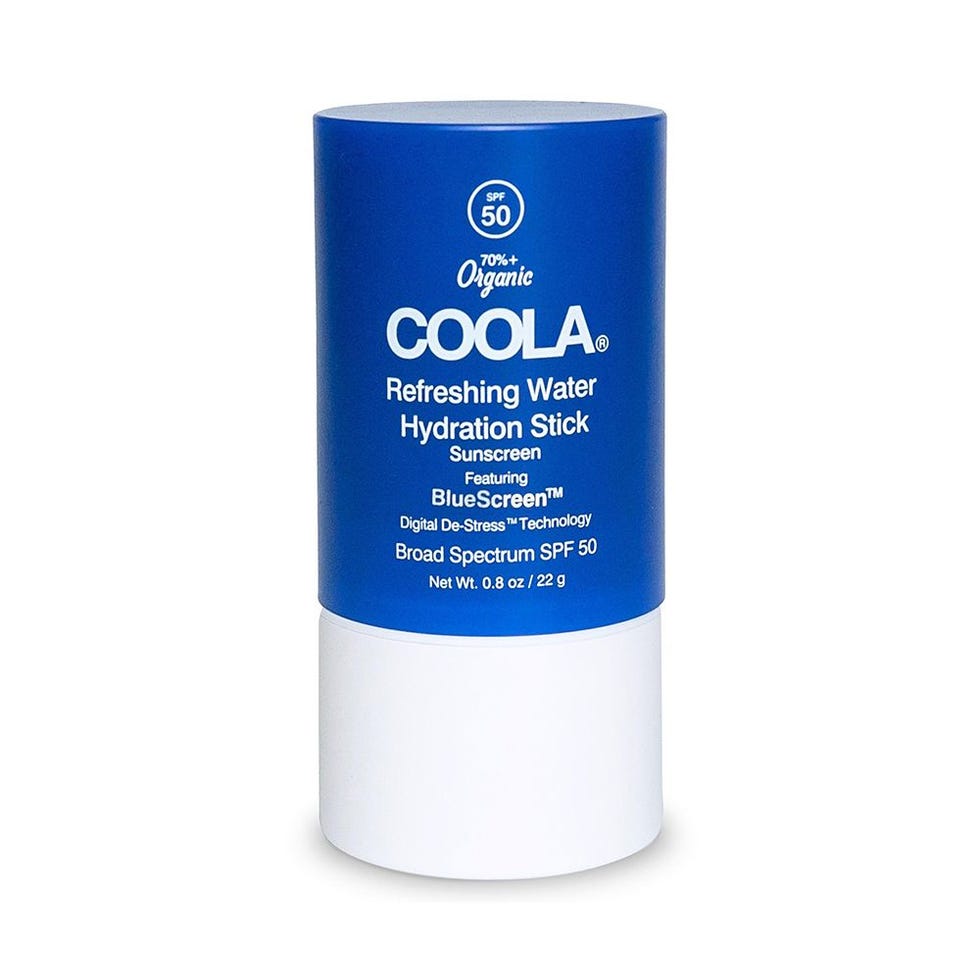
With the SPF market currently booming, today’s sunscreen sticks are also more advanced than ever. A growing number of options are designed to not clog pores or cause a white cast, making them suited for people with oily or acne-prone skin and those with melanin-rich complexions. Plus, there are even options with added skincare ingredients and ultra-lightweight finishes for seamless application both underneath and over makeup.
Intrigued? From sensitive skin-friendly mineral formulas to classic chemical blends, shop the 10 best sunscreen sticks that experts and customers love.
Aveeno Protect + Soothe Mineral Sunscreen Stick

Aveeno Protect + Soothe Mineral Sunscreen Stick
Pros
Good for sensitive skin
Ultra-protective
Easy to apply
Water-resistant
Cons
May not be suitable for acne-prone skin
“This is a larger-sized stick that I love for easy application,” says Dr. Wolinsky. “I use it often on my neck, the back of my hands, and to reapply all over when I’m outdoors. It has one of the highest percentages of zinc oxide (21.6 percent), so I find it offers amazing protection—although it is a little white (which I don’t mind) and requires some rubbing in. I would be careful using this on acne-prone skin. However, it’s not greasy at all.” Like the rest of the brand’s products, it also includes a touch of soothing oat and is free of phthalates, fragrances, and parabens to suit even the most sensitive skin types.
Amazon rating: 4.4/5 stars
Pros
Hydrating
Clear finish
Great for travel
Cons
May take some time to dry on skin
Before applying a touch of foundation or a full face beat, Dr. Wolinsky advises using Cerave’s mineral formula, as it contains barrier-boosting ceramides and nourishing hyaluronic acid. “This will help makeup sit nicer on the skin compared to other sunscreen sticks that are thicker and less hydrating.”
Featuring special InVisibleZincTM technology, the formula is designed to have a clear finish. It’s also non-comedogenic (meaning it won’t clog pores) and comes in a convenient mini size for travel.
Amazon rating: 4.5/5 stars
Pros
Durable
Sheer formula
Helps brighten and moisturize
Cons
Not reef-friendly
Dr. Wolinsky also recommends Shiseido’s sunscreen stick as another lightweight option that goes on sheer. On top of using SPF 50+, it includes WetForce and HeatForce technology that form a stronger UV barrier on skin when triggered by water or heat. Plus, it contains licorice extract and soy letcithin for added brightening and moisturizing benefits.
Because it’s non-comedogenic, it should also be safe for acne-prone skin.
Sephora rating: 4.6/5 stars
A Sephora reviewer said: “I've been using the Shiseido Sunscreen Stick for a few months now and I'm really happy with it. It's clear, so it doesn't leave a white cast on my skin, and it's lightweight and non-greasy. It's also easy to apply. I like that it's waterproof and sweat-resistant, so I can use it on my face and body without worrying about it coming off. I would definitely recommend this sunscreen to anyone looking for a clear, lightweight, and effective sunscreen.”
Neutrogena Ultra Sheer Dry Touch Face & Body Stick


Neutrogena Ultra Sheer Dry Touch Face & Body Stick
Pros
Water-resistant
High zinc oxide content
Fragrance-free
Cons
Thick finish
Neutrogena’s Ultra Sheer mineral formula is a “larger-sized stick that is easy to apply and non-greasy,” says Dr. Wolinsky. “It doesn’t leave behind a white cast but will stay put on beach days or during sweaty activities thanks to zinc oxide.”
Similar to Aveeno’s formula, this one features a high amount of zinc oxide (21.6 percent) for a protective, stay-put finish and is sensitive-skin friendly. Additionally, it contains vitamin E to help hydrate the skin and fight free radical damage.
Amazon rating: 4.2/5 stars
Sun Bum Original SPF 30 Sunscreen Face Stick

Sun Bum Original SPF 30 Sunscreen Face Stick
Pros
Vegan
Cruelty-free
Water-resistant
Cons
Not reef-safe
If you prefer something scented, try this beloved Sun Bum formula. The coconutty-banana concoction smells like the best parts of summer and will keep you protected via SPF30 and vitamin E—which has been studied to have some UV-blocking properties. Not to mention, it’s vegan and cruelty-free.
One thing to note: Although this product is Hawaii compliant, as it’s free of chemicals oxybenzone and octinoxate believed to be harmful to coral reefs, it does include the potentially damaging chemical octocrylene. As such, this sunscreen stick is best used for days when you won’t be swimming in the ocean.
Amazon rating: 4.7/5 stars
An Amazon reviewer says: “Took this to a USMC training event where it averages 105 degrees everyday with extreme UV rays. This stick held up really well, never melted, applied easy, and even smells really good. It’s super easy to throw in your pack or pocket. Ended up lasting me for another year and half just using it on trips.”
Colorescience Sunforgettable Total Protection Sport Stick SPF 50

Colorescience Sunforgettable Total Protection Sport Stick SPF 50
Pros
Oil-free
Ultra-nourishing
Reef-safe
Cons
May leave behind a white cast
Colorescience is an expert at protective mineral makeup and skincare, including this high-powered SPF50 sunscreen stick. In addition to blocking harmful UV rays, it works to ward off blue light, air pollution, and infrared radiation that could accelerate signs of aging. Moreover, it features an ultra-nourishing blend of jojoba esters, bisabolol, and squalane for a soft, supple finish.
The formula should also be reef-friendly, as it’s free of chemicals believed to be dangerous to marine life and contains non-micronized versions of zinc oxide.
Amazon rating: 4.2/5 stars
An Amazon reviewer says: “I planned to go to the beach for several days on vacation, so I purchased this stick and really love it. The smell is very soft, the texture you barely feel, and it leaves your skin perfectly hydrated and smooth.”
AHC Natural Perfection Double Shield Sun Stick


AHC Natural Perfection Double Shield Sun Stick
Pros
Helps reduce oil
Velvety finish with no white cast
Affordable
Cons
Some may prefer an unscented option
Nearly 90 percent of shoppers gave this affordable K-beauty stick four or five stars, with some calling it a game-changer for oily skin. The key to its magic is a range of natural sebum-reducing ingredients like argan oil, green tea, and willow bark extract. Even better, customers mention the formula has a smooth finish and doesn’t cause a white cast. Note that the product does contain coconut oil, though, so it may not be best suited for extremely oily skin types.
Amazon rating: 4.5/5 stars
An Amazon reviewer says: “All other sunscreens I’ve tried say they are matte but make me greasy. I have very oily skin, and this is a holy grail product. The product actually mattifies and provides SPF and the packaging is fantastic. 10/10.”
Pros
Moisturizing
Non-greasy
Won't clog pores
Cons
Not best for oily skin
Not reef-friendly
When you want a safe, flawless glow (aka sans looking overly sweaty or getting too much sun exposure), Supergoop’s sunscreen stick belongs in your arsenal. The formula protects with SPF50 and features a blend of lightweight oils for a dewy yet non-greasy finish—perfect for dry or combination skin types. Apply a base sunscreen all over, then swipe the clear formula across your cheekbones, nose, shoulders, and chest for a gorgeous highlighter effect.
Amazon rating: 4.5/5 stars
An Amazon reviewer says: “In the morning, I put on a tinted sunscreen and the rest of my makeup. Throughout the day, I know I need to reapply sunscreen, and that’s where Supergoop comes in. It is very lightweight and blends in perfectly, leaving a nice glow. I use it several times a day, and it is easy to carry in my handbag. Can be applied without a mirror because it is transparent. Well worth the money.”
EltaMD UV Stick Face and Body Sunscreen, SPF 50+

EltaMD UV Stick Face and Body Sunscreen, SPF 50+
Pros
Powerful
Contains antioxidants
Sensitive skin-friendly
No white cast
Cons
Pricey
Dermatologists, beauty editors, and celebrities alike love Elta MD’s cult-favorite sunscreen, and this stick version makes a great portable option. Of all the mineral sunscreens on our list, it has the highest amount of zinc oxide at 22 percent—providing significant sun protection. It’s also designed to be water-resistant for up to 80 minutes and is bolstered by a blend of skin-soothing bisabolol and antioxidants.
Amazon rating: 4.4/5 stars
An Amazon reviewer says: “It’s easy to apply on my face and neck. This also doesn’t break me out which is great. I can only use very few sunscreens due to my sensitive skin and I’m glad to add this to the portfolio. It doesn’t leave that much of a white cast compared to other sunscreens so I would say this is brown-girl friendly."
COOLA Refreshing Water Hydration Stick

COOLA Refreshing Water Hydration Stick
Pros
Soothing & hydrating
Fragrance-free
Cons
May feel slightly sticky on skin
Skin can easily become stressed and tired-looking throughout the day. Give your complexion an instant pick-me-up with this cooling SPF stick. True to its name, the formula helps keep your skin balanced with a blend of soothing aloe, coconut water, and hyaluronic acid. The fragrance-free, SPF50 formula is also designed to mitigate the effects of environmental aggressors on the skin, including blue light, infrared radiation, and pollution.
Nordstrom rating: 5/5 stars
A Nordstrom reviewer says: “This is the very first sunscreen I actually enjoy applying; it feels so refreshing and cooling and literally melts when touching my skin. It works great. No sunburns, no clogged pores, and leaves my skin hydrated by the end of the day.”
Are sunscreen sticks effective?

“Sunscreen sticks are effective, but like any sunscreen, they require a thorough application and rubbing into the skin to ensure all the skin is covered,” says Dr. Wolinsky. Plus, consistent use. “Also, no sunscreen offers 100 percent coverage and must be used with sun protective clothing and sun avoidance when possible.”
What to look for in the best sunscreen sticks

SPF 30+ and broad spectrum protection: As with any form of sunscreen, experts recommend looking for a sunscreen stick with at least SPF 30 and broad spectrum coverage against both UVA and UVB rays. This is because SPF only indicates the level of protection against UVB rays. When it comes to the SPF number, remember that the higher the value, the greater protection you’ll have against UV radiation—so as long as you re-apply every two hours.
Ingredients: If you want extra skincare benefits from your sunscreen stick, look for options with ingredients like hyaluronic acid and aloe vera to help soothe and hydrate. Per Dr. Wolinsky, patients with acne-prone skin should look for formulas that are non-comedogenic. “If you experience breakouts, avoid formulas with commonly used ingredients like shea butter that can clog pores.” And if you have sensitive skin, always choose formulas that are fragrance-free to help prevent potential irritation.
Mineral vs. chemical formulas: Chemical and mineral sunscreens work differently to protect the skin, and each has its own advantages and disadvantages. Choosing between the two types comes down to factors like skin type and activity levels.
- Chemical sunscreens: These use chemical UV filters, such as oxybenzone, avobenzone, octisalate, and octocrylene, to absorb the sun’s rays and convert them into heat on the skin. These typically have a clear finish once you rub them in. Nevertheless, Dr. Wolinsky mentions these types of formulas can be a bit more high maintenance since they should be applied every 30 minutes before sun exposure and directly to clean skin as the first step in your routine. Always be cautious when applying around the eyes and mouth. “Unfortunately, chemical sunscreens burn when they drip into the eyes and can taste funny if they drip into the mouth,” she warns. “Also, some chemical sunscreens are frequent allergens, so if someone has sensitive skin or allergies, they may not be the best choice.”
- Mineral sunscreens: Conversely, mineral sunscreens sit on top of the skin and deflect UV rays using active ingredients like zinc oxide and/or titanium dioxide. “These can be applied as the last step in skincare and don’t require any time prior to exposing the skin to the sun,” she says. “They’re better options for people with sensitive skin, as they don’t burn if they drip into the eyes and don’t cause allergic reactions often—if ever. Additionally, mineral sunscreens are ideal to use when sweating or swimming is involved, because mineral formulas stick on the skin as a physical protectant better.” However, “since mineral sunscreens create a physical barrier on the skin, it can be tricky to find formulations that don’t leave a white residue—which can sometimes stain clothing,” she adds.
How do I know if my sunscreen stick is reef-friendly?

In 2018, Hawaii signed into law the Hawaii Act 104. This bans the sale of sunscreens featuring chemical filters oxybenzone and octinoxate, which some studies have shown to be damaging to coral reefs. Most marketed “reef-safe” sunscreens instead use UV-blocking minerals zinc oxide or titanium dioxide. While a sunscreen may be Hawaii-compliant, keep in mind there’s currently no clear scientific consensus about which sunscreen ingredients are actually safest. In fact, a 2014 study found that titanium dioxide in the water formed hydrogen peroxide, a chemical harmful to sea organisms.
It's also important to consider that even if a product is labeled Hawaii-compliant, it may include ingredients other than oxybenzone and octinoxate that could negatively impact reef life. Common offenders include FDA-approved chemical sunscreen filters like homosalate, octocrylene, and octisalate as well as parabens, a preservative often used in skincare and cosmetics. (FYI, Haereticus’s Environmental Lab, or HEL, has a more comprehensive list of “harmful substances” here). According to the HEL, your safest bet is to look for products without any of the above “harmful substances” and that are also listed as being made with “non-nano” particles—or non-micronized versions of zinc oxide and/or titanium dioxide. These are believed to be the most reef-friendly sunscreen ingredients, as research suggests smaller versions of these particles could be toxic in high concentrations.
Meet the Expert

Dr. Claire Wolinsky a board-certified cosmetic and medical dermatologist in New York City.
Why Trust ELLE Beauty?

Sam Peters is a seasoned commerce writer and editor with over five years of experience covering beauty, fashion, and lifestyle topics. For this piece, she consulted a dermatologist about the top sunscreen sticks and what to look for when shopping. She also scoured the internet for options with glowing customer reviews, assessing each on factors like level of sun protection, reported finish, and ingredients offered.
Sam Peters is a Senior Commerce Editor at Hearst covering fashion, beauty and lifestyle. Her writing has appeared in WWD, Footwear News, Real Simple, PopSugar and Bridal Guide, among others. She enjoys unpacking the latest trends and testing and reviewing some of the most innovative, emerging products on the market.
Watch Next

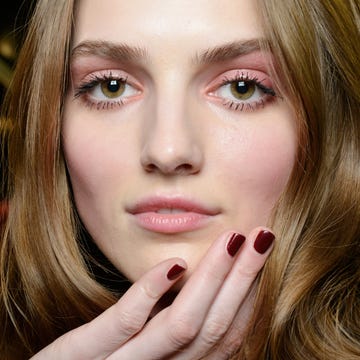
Are Dip Powder Nails Better Than Gel Manicures?
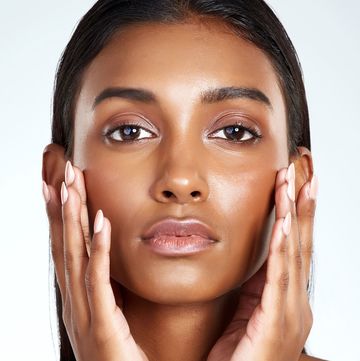
The Correct Order to Apply Your Skin Care
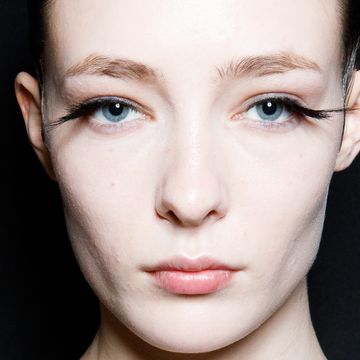
The Safest Way to Remove Your Lash Extensions

Facial Cleansing Brushes Should Be Your Skin's BFF

